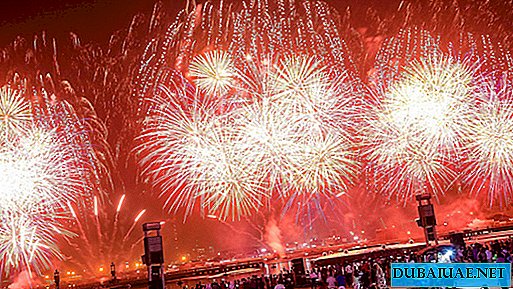
Over the past three years, the Dubai real estate market, overheated by speculation during the pre-crisis boom, has experienced a profound correction. However, the world does not stand still, and lately the opinions of experts confirming the restoration of the Dubai market and the return of investor interest have been increasingly heard. Whether this is so, we are talking with the Executive Director of IMEX Real Estate Arthur Kobozev.
 Arthur, please tell me what is the situation on the real estate market in Dubai now?
Arthur, please tell me what is the situation on the real estate market in Dubai now?
The question is too general. I propose to clarify to begin with what exactly we are going to talk about. The fact is that in Dubai there are so-called freehold areas where real estate can be sold to foreign citizens, and the rest of the territory where real estate can be bought only by UAE citizens and five other countries that are members of the Gulf Cooperation Council . In addition, there is a sales and rental market, housing and non-residential real estate market, and so on.
I think our readers will be more interested in the situation on the freehold real estate market.
As for freehold real estate, over the past few years since the beginning of the global financial crisis in 2008, the real estate market in Dubai has undergone significant transformations. It is known that before the crisis, the so-called “off-plan” projects, that is, real estate objects sold at the initial stages of design and construction, dominated the UAE market.
Since the crisis began, due to a serious correction in prices, the off-plan market has virtually disappeared. Speculators left the market, and the market itself reoriented to finished real estate and end users. Moreover, if immediately after the crisis, in 2009-2010, the market was clearly the buyer's market, then last year there was a clear tendency for the market to shift, in particular, in the housing segment, back to the seller's side. This is especially noticeable in the areas most developed by end users with developed infrastructure, such as The Palm Jumeirah, Dubai Marina, Jumeirah Lakes Towers, Emirates Living, Downtown Dubai and several others.
With regard to the office real estate market, the situation is less clear. Today, there is a clear oversupply on the market. Moreover, in the near future a large number of office spaces will be completed and will enter the market, the construction of which was begun even before the 2008 crisis. Therefore, although some signs of price stabilization have recently been observed, from the point of view of growth in value and the amount of rental income generated, investments in office real estate over the next few years, in my opinion, look less attractive than, say, housing investments.
That is, now housing prices in Dubai are rising?
 It is safe to say that the market has stabilized, and moderate growth is observed in popular areas. Of course, it would probably be naive to expect the same rates of growth in real estate prices that we observed during the pre-crisis boom. After the crisis, the market moved from the stage of active growth to the stage of mature development. However, for a number of the most popular projects for 2011, housing prices showed double-digit growth rates. So, for example, prices for villas in the Springs area have increased by 15-20% over the year - this is a fact. The prices of apartments in the Oceana Residence and Palm Residences (Fairmont) projects on the famous "palm" island of The Palm Jumeirah have grown by 10-15%. Luxury villas on the "branches" of The Palm Jumeirah have risen in price by 5-10%.
It is safe to say that the market has stabilized, and moderate growth is observed in popular areas. Of course, it would probably be naive to expect the same rates of growth in real estate prices that we observed during the pre-crisis boom. After the crisis, the market moved from the stage of active growth to the stage of mature development. However, for a number of the most popular projects for 2011, housing prices showed double-digit growth rates. So, for example, prices for villas in the Springs area have increased by 15-20% over the year - this is a fact. The prices of apartments in the Oceana Residence and Palm Residences (Fairmont) projects on the famous "palm" island of The Palm Jumeirah have grown by 10-15%. Luxury villas on the "branches" of The Palm Jumeirah have risen in price by 5-10%.
The luxury apartments in the Kempinski Residences project on the crown of The Palm Jumeirah have also risen in price. Since demand is now being formed mainly at the expense of end consumers, the projects with the most successful set of consumer characteristics show an increase in price in the first place. This includes location, availability of developed infrastructure, quality of the project itself, and limited supply. Moreover, it is becoming increasingly difficult to choose the right object in the market for our customers - the number of interesting offers for sale has recently decreased significantly, with the increasing number of requests for purchase.
Is rental housing growing too?
Historically, the rental market in Dubai is very developed. Dubai is the largest business center in the region. Moreover, the local population here is less than 10%. The remaining 90% of the more than two million inhabitants of the metropolis are visitors. Few people who come to work in Dubai can afford to buy their own housing. However, everyone needs to live somewhere. Therefore, rental housing in popular projects is very in demand. In 2009-2010, there was a general decrease in rental rates associated with the consequences of the crisis. But already in the second half of last year, the trend changed, and rental rates began to grow. For example, a two-bedroom apartment in the popular area of The Greens, which in December 2010 was rented for 85 thousand dirhams a year (this is about US $ 23 thousand), in December 2011 we rented out for 110 thousand dirhams a year (i.e. e., for approximately US $ 30 thousand).
 How profitable is it to rent property in Dubai?
How profitable is it to rent property in Dubai?
If we talk about long-term leases (for a year or more), for rental housing in Dubai net rental income (that is, rental income minus mandatory property maintenance costs) today is on average 5-10% per annum, invested in the acquisition of real estate. The spread in profitability is due to differences in the type and category of housing, its location and cost of services. At the same time, more expensive exclusive real estate, as a rule, gives a slightly lower return in the form of rental income than mass housing in affordable projects. In the case of short-term leases, the current return on investment may be from 10 to 20% per year. And do not forget to add to this also an increase in the value of the real estate itself.
Are there any features when renting a home for long and short term rent?
When renting a long-term lease, the contract is usually concluded for a year with the possibility of subsequent renewal. The rent for the whole year is paid in advance upon signing the lease. In this case, the tenant opens in his own name and independently pays all current bills for water, electricity, communication services, etc. Therefore, long-term lease minimizes financial risks and costs of real estate management.
For short-term leases, rental rates are much higher, however, all current expenses must be paid by the owner independently. In addition, for renting a short rental housing must meet certain requirements: the apartment or villa must be furnished and equipped with everything necessary for living, including dishes, bedding, etc. Naturally, before the arrival of a new tenant and at the end of the rental period must be held cleaning, washing clothes, etc. Since tourists often rent housing for short rents, one must also be prepared for the fact that housing will have to be transferred to tenants and taken back from them at any time of the day or night.
It turns out that only owners permanently residing in Dubai will be able to rent out on a short-term lease?
 Not at all. Owners can hire specialists to solve the whole spectrum of emerging issues. For example, we, at IMEX Real Estate, offer our clients a full range of property management services in Dubai. We have developed special service packages for both the option of renting out a long-term lease and for renting out on a short-term basis. We take care of all the issues that arise, from equipping housing with everything necessary and finding tenants, and ending with the preparation of reports and the payment of rental income. All that is required from the owner is to contact us and conclude an appropriate contract with our company.
Not at all. Owners can hire specialists to solve the whole spectrum of emerging issues. For example, we, at IMEX Real Estate, offer our clients a full range of property management services in Dubai. We have developed special service packages for both the option of renting out a long-term lease and for renting out on a short-term basis. We take care of all the issues that arise, from equipping housing with everything necessary and finding tenants, and ending with the preparation of reports and the payment of rental income. All that is required from the owner is to contact us and conclude an appropriate contract with our company.
Moreover, we can offer our clients who still do not have real estate in Dubai, investment options that take into account its subsequent use. By purchasing a villa or apartment through IMEX Real Estate, the buyer can immediately conclude with us a contract for subsequent management with predefined profitability parameters. For example, if a house is purchased for the purpose of spending in Dubai only a few months a year, by renting out the remaining period, you can get very good additional income.
And how many of our compatriots are buying housing in Dubai?
Lot. The Russian-speaking population is one of the first places among the total number of buyers of real estate in Dubai. Most of them are owners of small and medium-sized businesses. They make up the most active environment, they are ready to carefully study the market, consider offers, make informed and thoughtful decisions. In recent years, we have also seen an increase in the number of buyers from the non-profit sector: officials and employees of large state corporations.
The most popular among our compatriots for obvious reasons are the prestigious coastal areas of Dubai: The Palm Jumeirah, Dubai Marina and a large housing project located directly on the seashore - Jumeirah Beach Residence. With housing in these areas, as a rule, there are no special problems when buying, selling and renting out, including with the scheme of seasonal use of housing by the owners themselves and renting out for the rest of the time. Real estate in these areas is the most liquid for investors and more comfortable for personal residence.
What, in your opinion, are the prospects for the housing market in Dubai?
Most market participants agree that over the next few years in Dubai we will see a smooth market growth. And there are reasons for this. Since the crisis began in 2008 in Dubai, not a single new residential project has been launched. The moratorium on registration of new projects introduced by the Dubai Real Estate Market Regulatory Authority (RERA) has not yet been lifted. At the same time, according to the Dubai Statistical Center, the population of the emirate over the past three years has grown by more than 300 thousand inhabitants, and the growth rate is only increasing. This is facilitated by political stability, the highest level of security, a favorable investment climate, the absence of taxes and restrictions on the movement of capital, as well as the cost of doing business significantly reduced as a result of the crisis (office rent, staff costs, etc.). All this attracts business, which, in turn, requires human resources.
Now the market is in the process of absorbing surpluses of the real estate, the construction of which was begun even before the crisis. Since real estate is an asset that takes a significant amount of time to build (the building construction cycle takes, on average, 2-3 years), a shortage will inevitably arise in the market for the foreseeable future.
That is why we can confidently talk about an optimistic scenario for the development of the situation on the real estate market in Dubai. This is also confirmed by recently released data from the Dubai Land Department on the volume of real estate transactions for the past year. According to these data, the total volume of registered real estate transactions in Dubai in 2011 increased by 20% compared to 2010 and reached 39 billion US dollars.
That is, everything will be fine?
I am absolutely sure of that. Thank you for the interview. We wish you success.
You can get any additional information about the acquisition and management of real estate in Dubai from the specialists of IMEX Real Estate by tel. in Moscow +7 495 5100008, toll-free number in the UAE 800-IMEX (800-4639) or by sending a request by e-mail [email protected].











